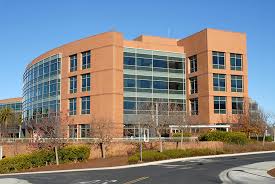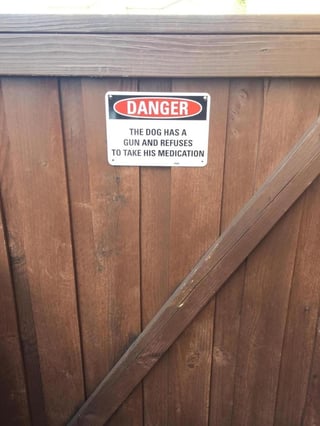 This is the second most important training article about commercial real estate finance ("CREF") that I have ever written. My most important CREF training blog article can be found here.
This is the second most important training article about commercial real estate finance ("CREF") that I have ever written. My most important CREF training blog article can be found here.
Most new commercial mortgage brokers start out arranging small balance commercial real estate loans. These are the commercial loans of less than $5 million ($5MM).
Banks are by far the most active lenders for small balance commercial loans. Unfortunately most bankers take the position that if a borrower has to hire a mortgage broker to help him get a commercial loan, that deal is proably a stinker. After all, there are over 6,000 commercial banks in America. Why couldn't the borrower find a bank on his own? Why didn't the borrower's own bank make him the loan? How many banks have already looked at this deal and turned it down?
A great many bankers are therefore highly prejudiced against commercial loans brought to them by commercial mortgage brokers. Unfortunately this harsh environment is where most newbie commercial mortgage brokers must learn their trade.
By the way, it is the rare trade show that I attend where I am not greeted warmly and appreciatively greeted by at least one or two graduates of my nine-hour training course, How to Broker Commercial Loans. When I first started out in commercial real estate finance 36 years ago, nobody taught this stuff! It was all a closely guarded secret.
Okay, so bankers are distrustful of small balance commercial loans brought to them by commercial mortgage brokers. Got it. But what about the Big Boys, the commercial lenders who make the major loans, the commercial loans larger than $5MM? By the way, in my last few blog articles I have been referring to the really large commercial loans - the deals larger than $5MM - as large balance commercial loans. That is not really the best term. They are more often called major loans by the lenders themselves.
Two weeks ago my oldest son, George IV, and I flew to Las Vegas to attend the Western States Commercial Real Estate Finance Conference, the biggest trade show of the year for the CREF industry. At the show, John Hancock Life Insurance Company had a booth soliciting the really large commercial loans - in this case $10MM+. George IV and I approached the loan officer, coincidentally named John, to pitch our wonderful new web site, CommercialMortgage.com.
After my 90-second pitch, John politely but unapologetically said, "No." By the way, John Hancock was just about the only lender to say no to us at the conference. CommercialMortgage.com was a smash hit.
"I'm an old man, George," continued John. "I don't want to work that hard screening out deals. My best brokers know what I want. When one of my best brokers calls me, I know that there is a 50-50 chance that I am going to close a loan if I take that call." Bam!! An amazing epiphany hit me upside the head like a can of V8.

Commercial lenders making major loans actually WANT a good commercial mortgage banker involved in the deal in order to screen the deals. They don't want to field the countless calls from direct borrowers. They actually want a middle man, a good commercial mortgage banker to screen their deals. (George IV and Tom, my sons, this is huuuuge! Confused? I write this blog mainly to teach my two great sons the family business, and you get to benefit by reading this invaluable training for free! Make sure you subscribe!)
By the way, when a commercial mortgage broker starts regularly closing major commercial loans - deals over $5 million - he becomes, in the parlance of the industry - a commercial mortgage banker, even though his company doesn't actually service (collects the payments) on the loans he originates.
The vast majority of the major loans originated in the country are, in fact, actually originated by life company correspondents who come across deals not suitable for their stable of life companies. You will recall that a life insurance company correspondent is a mortgage company that is the exclusive representative for a life insurance company in a particular region of the country and who collects the payments every month for their life company clients. This is why the lenders making major commercial loans often call their best brokers commercial mortgage bankers, even when the moniker is slightly inaccurate.

So how do you screen a major commercial loan? In most cases, the large commercial loans that you will be screening will be either construction loans or bridge loans. Large permanent loans are pretty straight forward. Pop quiz: Define a permanent loan. A permanent loan is a garden-variety first mortgage on a commercial property that has at least some amoritzation (25-years is the most common amortization for commercial loans) and a term of at least five years.
When screening a construction loan or a bridge loan, there are four important questions for which you will need answers:
- What is the net worth of the borrower? Remember, according to the Net-Worth-to-Loan-Size Ratio, the net worth of the borrower should be at least at least as large as the loan amount. In other words, the net-worth-to-loan-size ratio should be at least 1.0. If the two developers have a combined net worth of just $3 million, and they are trying to get an $8 million construction loan or bridge loan, they are smoking too much of that loco weed.
- What experience does the borrower have owning, managing, renovating, and/or building commercial projects of this size? The answer to this question will be found in the borrower's curriculum vitae ("CV"), which is a fancy term for the borrower's ownership, management, renovation, and/or building experience resume.
- The single most important question is how much equity (skin) will the borrower have in the deal? At an absolute minimum, the borrower will need to be able to cover at least 20% of the total cost of the project, and on the larger deals, 30% is far more likely. The Total Project Cost includes land/acquisition costs, hard costs, soft costs (including loan points and an interest reserve), and a contingency reserve of 5% of hard and soft costs.
- If the loan being sought is a bridge loan, what is the borrower's exit strategy? The exit strategy is how the borrower intends to pay off a bridge loan, which is of vital importance to any short term lender. Remember, a bridge lender's yield plummets when a bridge loan goes past maturity. Will the borrower refinance the property with a permanent lender when the property is stabilized (when every unit is leased at market rates)? The mere sale of the property is probably the weakest exit strategy that a borrower can propose.
Hey guys, keep looking for the contents of the business card of any commercial banker making commercial real estate loans. You can trade the contents of that one business card for a free directory of 2,000 commercial real estate lenders. We have one idiot who stays up every night trying to scrape the contents of our wonderful new commercial loan portal, CommercialMortgage.com. He is trying to get our list of commercial lenders. Hellooooo, Mr. Dodd Frank (the name he uses when he scapes our site for hours), you can get the same list by giving us the just one good banker! Silly.
Guys, if you have not taken a free ride on our wonderful new commercial loan portal, CommercialMortgage.com, you are missing out on a treat. Feel free to enter an imaginary loan just for your test drive. C-Loans.com only has about 750 participating commercial lenders. CommercialMortgage.com has 3,159+ commercial lenders, and there is no overlap!!!
"C'mon, George, you're not a complete idiot. CommercialMortgage.com gives mortgage brokers a great list of commercial mortgage lenders who will compete against C-Loans.com. WTFudge are you doing?"
The truth: Every day two salesmen for C-Loans.com contact banks to invite them to join C-Loans.com. The grumpy, sleepy old guys who really don't care that much about originating many new commercial loans we add to CommercialMortgage.com. Need to actually close a commercial loan? Submit your commercial real estate loan request through C-Loans.com.
Got a buddy or a co-worker who would benefit from learning commercial real estate finance?
Want more free training in commercial real estate finance?
Do you have a commercial real estate web site? If so, be sure to add a link (or the smarter move is to add 30+ links) back to C-Loans.com to your home and interior pages. We have boasted for years of paying that one big referral fee of $21,250 to Alun Dunn. But now there is another web site owner - a regular guy just like you - who referred five years ago a single hot commercial loan broker to C-Loans.com and who just earned his 9th referral fee. He earned all of these referral fees from from that one hot commercial loan broker who found us from his site, and these referral fees have now totalled almost $19,000! Guys, in truth, this is a true no-brainer.









